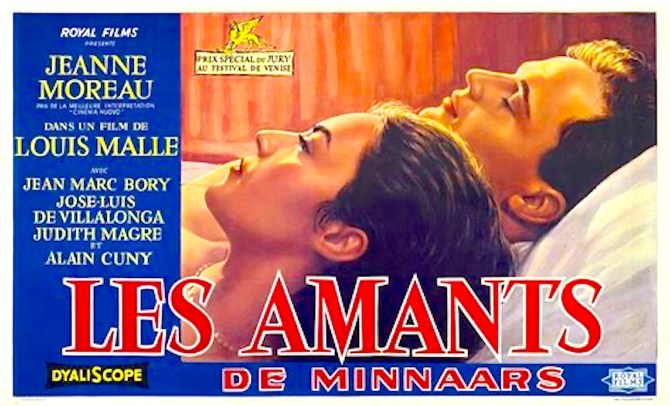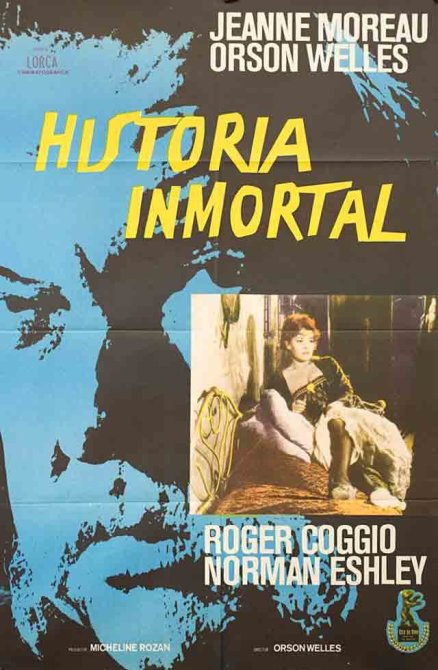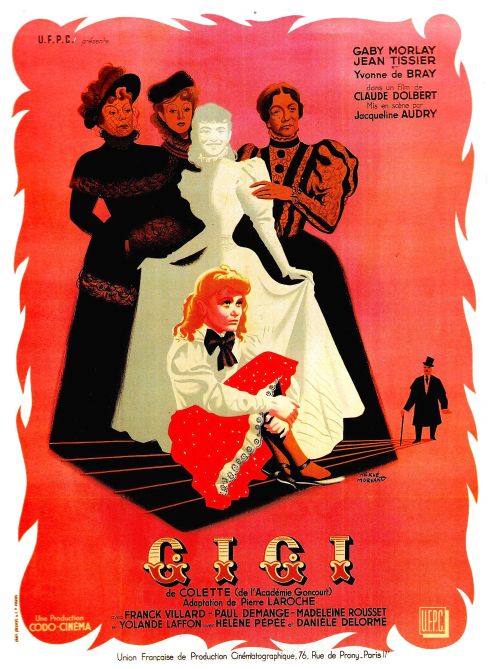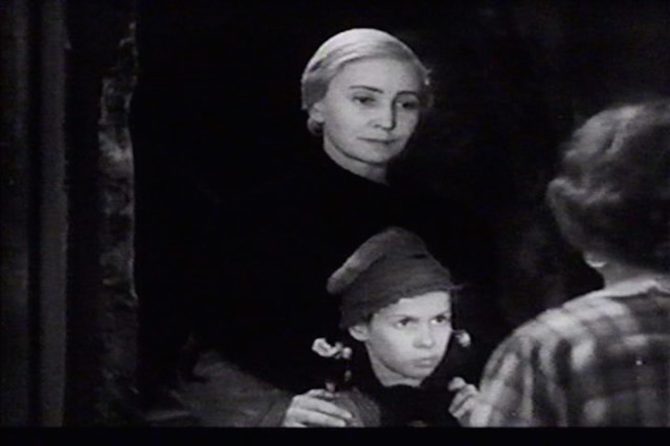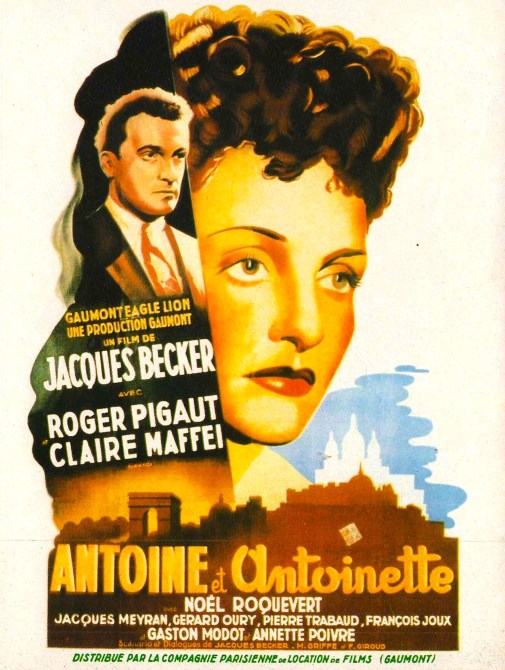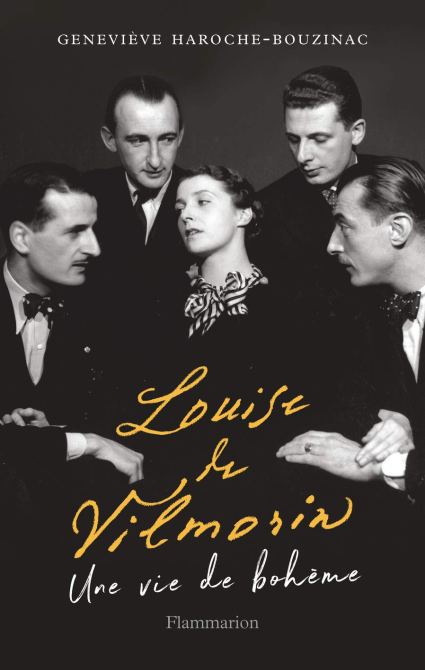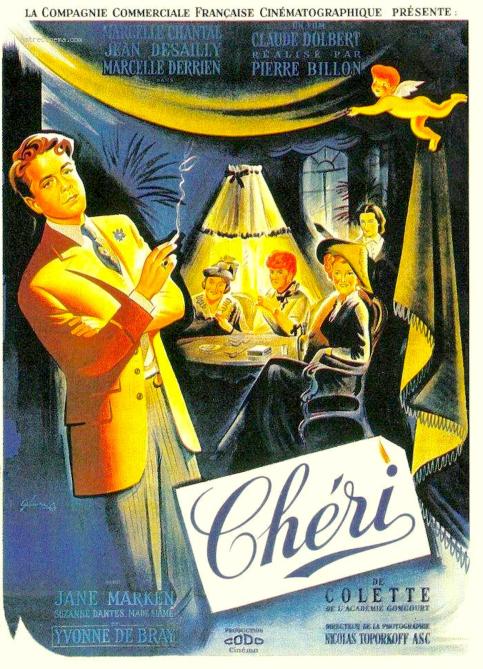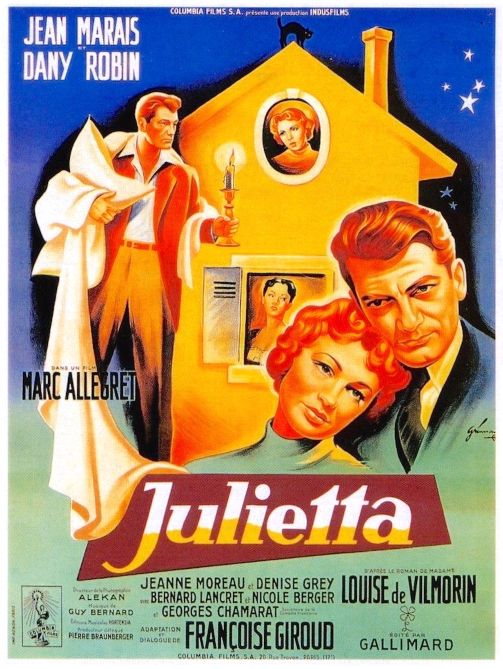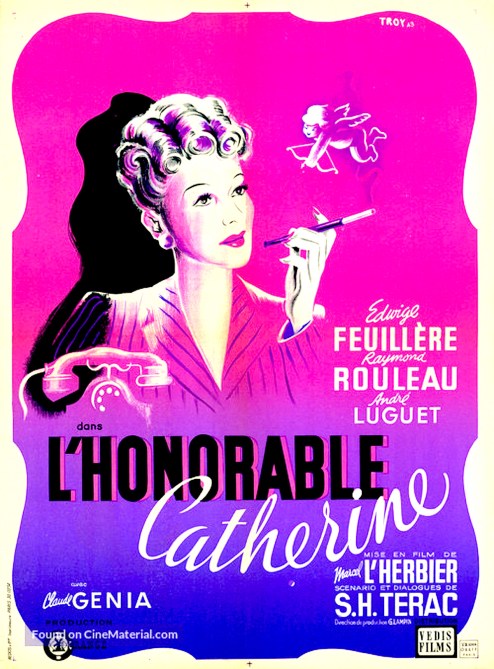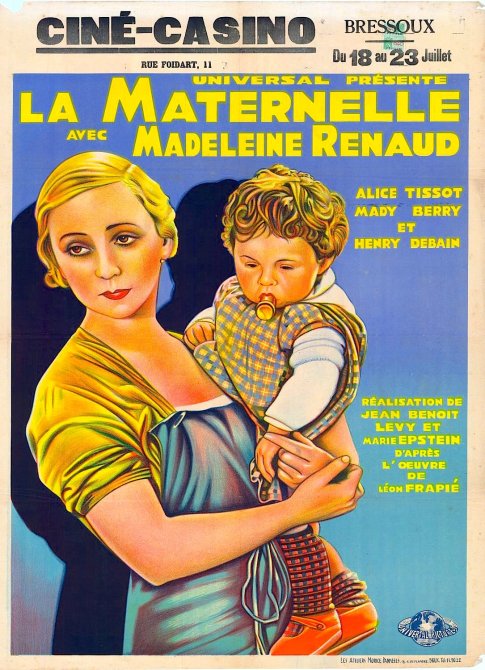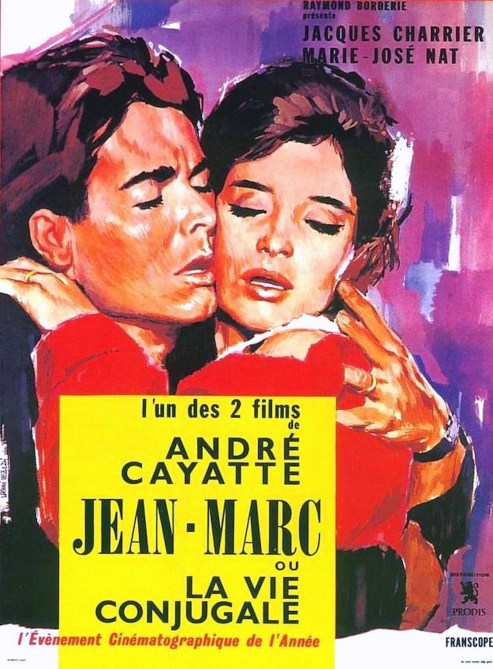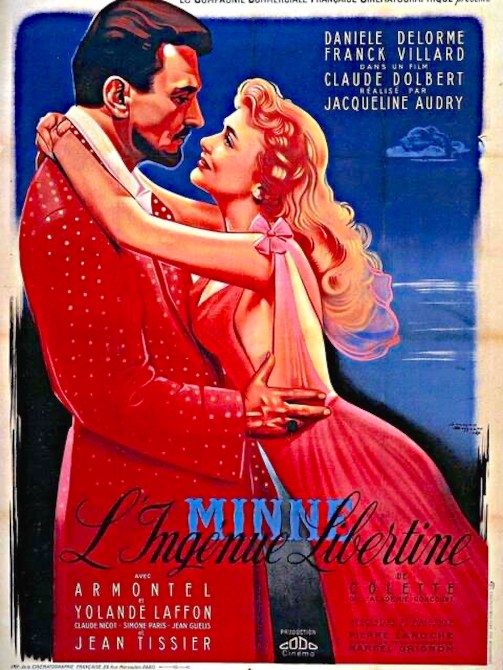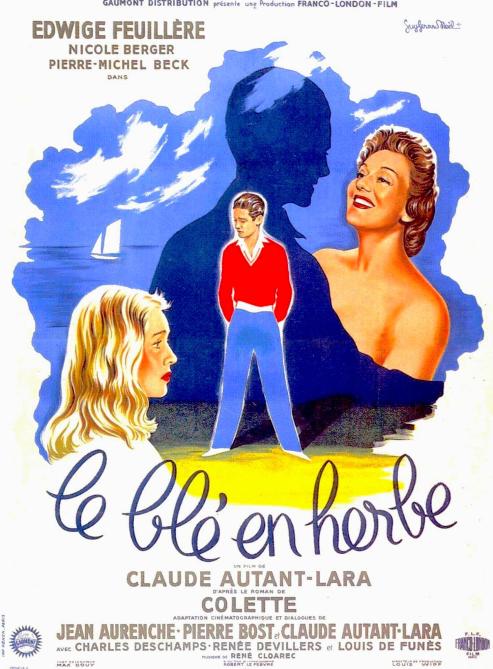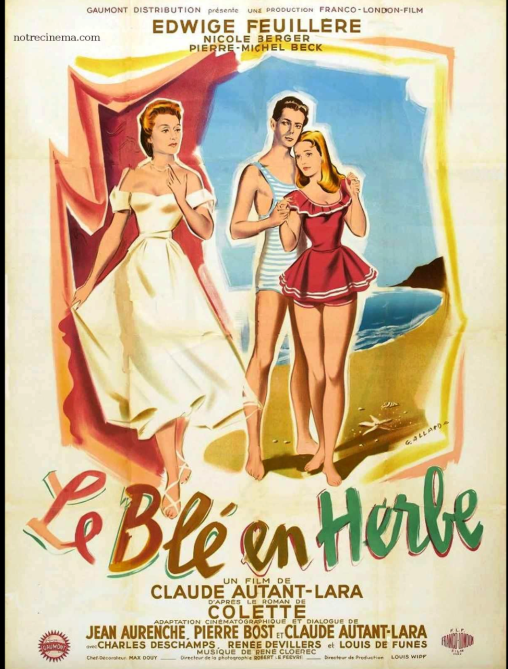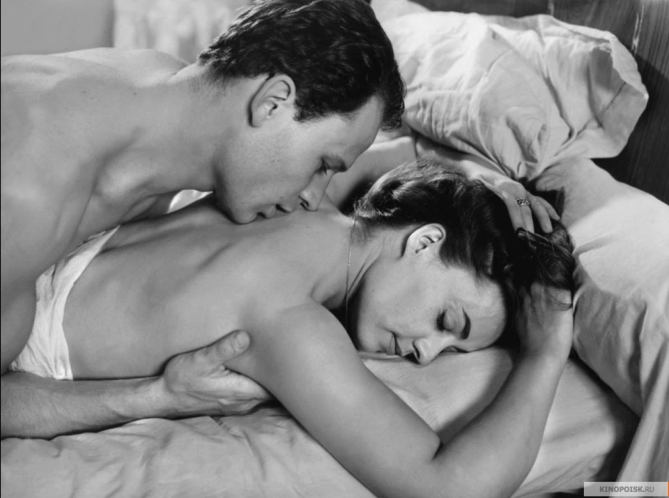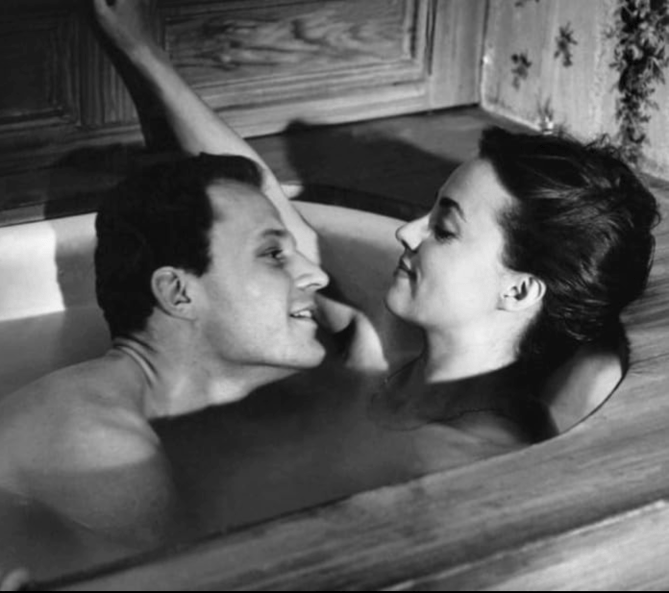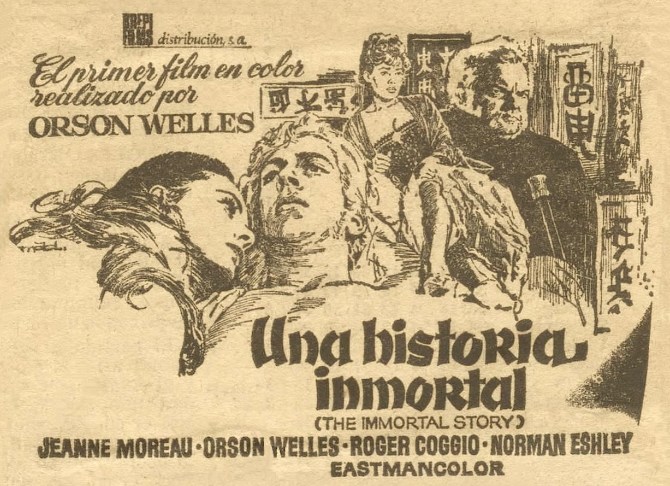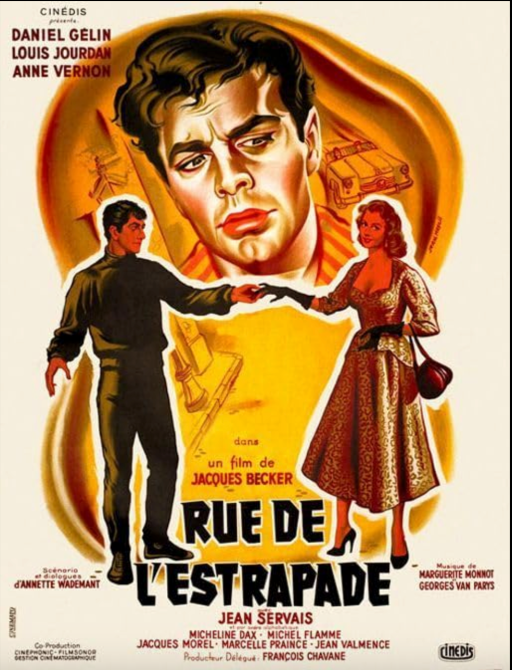MCP’s Unique Look at Gender Issues in Classic French Film
OWEN FIELD (interviewing Phoebe Green and Don Malcolm)
(March 28,2024)
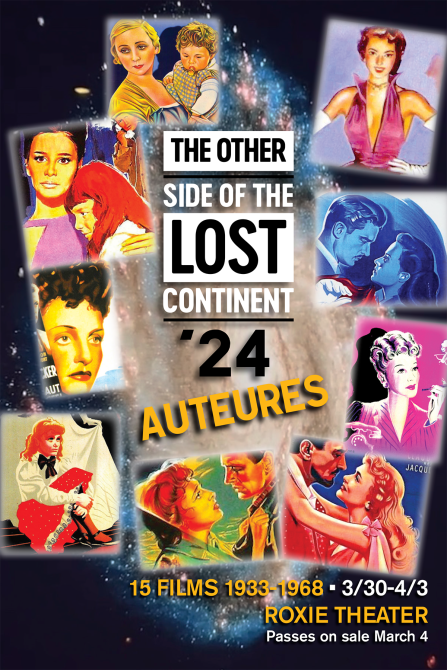 In the midst of its long-running rare French noir series (that will exceed 150 titles screened when it concludes this fall), Midcentury Productions has opened the door to an entirely other aspect of classic French cinema: what we might call “the battle of the sexes.” It’s a rich area, because that battle is still going on—particularly in America, with reproductive rights suddenly front and center.
In the midst of its long-running rare French noir series (that will exceed 150 titles screened when it concludes this fall), Midcentury Productions has opened the door to an entirely other aspect of classic French cinema: what we might call “the battle of the sexes.” It’s a rich area, because that battle is still going on—particularly in America, with reproductive rights suddenly front and center.
While the 15 films that make up the 2024 edition of THE OTHER SIDE OF THE LOST CONTINENT do not veer into that hot button issue, they raise many questions and concerns about gender equality as the movies move from the Belle Epoque to the 1960s. Building from an opening slate of four films based on novels by Colette, the series (subtitled “Auteures”) showcases women writing abou gender issues from an emerging feminist perspective—a point of view that is sustained throughout, even with the continuing presence of males in the director’s chair.
This follow-up to a smashing 18-film series in 2023 (and six essential, earlier screenings that were the test run for THE OTHER SIDE concept) focuses mostly on films made after WWII (the show in ’23 tilted strongly toward the 1930s). “Auteures” focuses just as much on women behind the camera (director Jacqueline Audry; writers Louise de Vilmorin, Annette Wademant, Françoise Giroud and Solange Terac) as it does on female stars, but its centerpiece is still arguably Jeanne Moreau, who embodied the changing discourse about women and womanhood and began to blow it wide open in the late 1950s. Her steely gaze is the eye of this developing hurricane that will descend upon cinema in the decades to come.
“Auteures” plays at the Roxie Theater, MCP’s home base since 2014, from Saturday March 30 (the “day of Colette”) through Wednesday April 3 (the “night of he said/she said”). I spoke to series designers Phoebe Green and Don Malcolm about all of it, but focused a bit more on Jeanne Moreau, whose triple feature plays in the Roxie’s big room and is thus accessible to a larger audience. (If you have only one night to give to the “Auteures,” make it April 1, because Moreau is a legend and she’s working with words and ideas developed by Louise de Vilmorin, a literary figure as distinctive in her way as Colette. And, let’s face it, she has a body of work that is celebrated but—paradoxically—rarely if ever screened.)
Owen Field: So here’s another chance for these forays into neglected French cinema to reveal more about the shockingly absent film career of Jeanne Moreau…
 Phoebe Green: Yes, among other things. It was a happy collision of an icon with a true female “auteure”—Louise de Vilmorin—with whom Moreau had a lot in common—
Phoebe Green: Yes, among other things. It was a happy collision of an icon with a true female “auteure”—Louise de Vilmorin—with whom Moreau had a lot in common—
Don Malcolm: —Both were intensely lusted after by famous men!
PG: Sought after! It has a more genteel ring to it…
OF: Let’s just say that both in their own way were well-equipped to succeed when doing battle in the gender wars. Did you feel that you needed Moreau as a hook for this series? Was the niche possibly too narrow otherwise?
PG: We had a larger list of niche items originally, with Moreau as kind of the cherry on top. But the Roxie needed us to streamline things a bit, and Don wanted to get us into the big theater…
DM: So it evolved. There would have been more Jacques Becker, for one thing—and we were hoping to reprise OMBRE ET LUMIERE, with Simone Signoret and Maria Casares (shown in 2019).
PG: But the schedule needed to be tightened…
OF: Still, the Moreau films for the Monday night in the big theater manage to nicely do three things at once—there’s a big name, the films chosen include other key behind-the-scenes female involvement, and we get a deeper look at that big name than we’ve had from any other “arthouse” cinema.
DM: And that ties in with what we’ve been trying to do with Jeanne Moreau since 2015—bring more of her films, especially from her formative period, back to the big screen.
PG: It is rather shocking to see how seldom her films get screened, and a series like this gives us a chance to show things like her very first film, LAST LOVE, that aren’t viable in the “noir” format.
OF: I’m shocked by how seldom anyone even talks about THE LOVERS, given how controversial it was when it was released! (laughter)
PG: Controversy often subsides quickly into “old hat.”
OF: Yes, but a woman—being…sexual…and then the twisty twist in the middle when—
DM: —Don’t give it away! Let the people come out and see for themselves!
PG: It was quite a lot for 1958! But this is where I think someone like Louise de Vilmorin really comes into play. Her sensibility, the perspective of her experiences as a woman—these were what proved to be crucial for THE LOVERS to open up a startling view of a woman’s emotions, and how they might just erupt after being stifled for so long.
OF: I take it the twisty twist isn’t in the source material…
DM: No. That was all Louise de Vilmorin, who knew that Moreau would bring it all to life in a way that had never been seen before.
PG: She and Moreau had to convince Louis Malle (director of THE LOVERS) that the twisty twist was something that could actually happen!
DM: Didn’t Moreau say to him, “Oh, Louis, it happens all the time!” (laughter)
OF: Though I suspect that her inflection was just a bit different from yours…
 PG: And of course the two of them were having an affair at the time…and apparently each seeing someone else “on the side”…
PG: And of course the two of them were having an affair at the time…and apparently each seeing someone else “on the side”…
OF: So much “ooh la la,” so little time… (laughter)
DM: But it says something that the actions of the woman in the film are what are so shocking and unexpected. Is sex now so oversold that the film is quaint in our “golden age” of porn? Quite possibly—but I encourage the audience to come together to see the film after sixty-five years and talk about Moreau’s character.
PG: Agreed—and I think Louise de Vilmorin had an innate understanding that permitted her to create something that we can still talk about with wide eyes so many years later.
OF: Moreau and Orson Welles got on quite well, and THE IMMORTAL STORY, which follows THE LOVERS, is—what—their third collaboration?
DM: Yes, after small but potent roles in THE TRIAL and CHIMES AT MIDNIGHT. In THE IMMORTAL STORY she is hard-bitten in a way that we had only seen glimpses of in earlier films…
PG: She adds spice to a story that might otherwise remain too bitter and muted—what Moreau does so well is change the temperature of a film when she enters it, and she does it here as well.
 OF: And was she able to do that right from the start? Will we see her “change the temperature” in LAST LOVE, her first film and the MCP ultra-rarity for the evening?
OF: And was she able to do that right from the start? Will we see her “change the temperature” in LAST LOVE, her first film and the MCP ultra-rarity for the evening?
DM: A very good phrase that describes her impact—and yes, that’s all there in LAST LOVE as well, maybe not quite perfected—she is just 21, you know, not easy to be as world-weary at that age…
PG: But she is a free spirit with an odd sense of dread in this film—feisty but subject to dark changes of mood…it’s the embryonic Moreau character, which she would increasingly imbue into her characters wherever she could in the pre-New Wave films—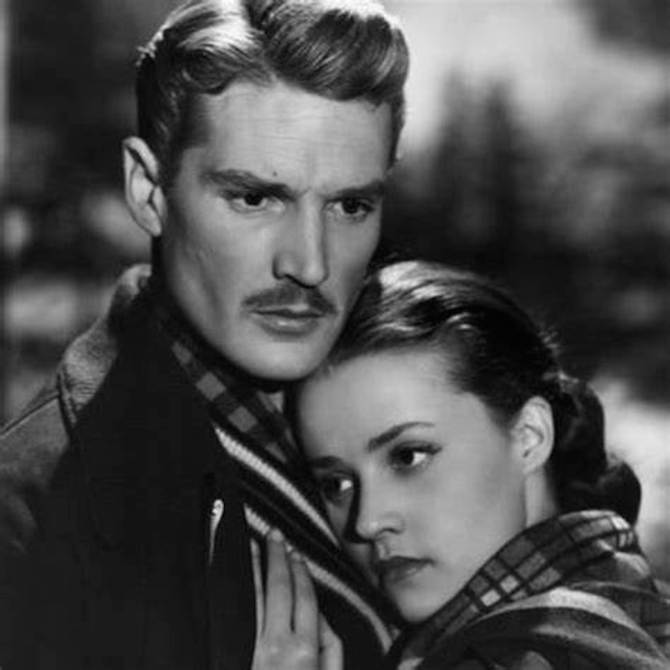
OF:Which are the films that MCP has been bringing back to audiences in the French noir shows.
DM: Right—but Phoebe’s notion that she is finding ways in all her films to create what we will later recognize as “Jeanne Moreau” is on the money, and it’s why we need to see all of these early works again.
OF: So those reading this should know that there are plenty of seats in the big theater for them to come out and see a legend in three phases of her career, correct?
DM: We look forward to opening up our “film club” to a wider audience…
OF: And now what about the other twelve films? We can’t neglect them, can we?
PG: Of course not! We have four films on Saturday from the novels of Colette—two of which are directed by the real pioneering female director in France, Jacqueline Audry!
DM: Which makes for a total of four Audry films we’ve shown—in addition to GIGI and MINNE, her sparkling collaborations with Daniele Delorme, we also screened OLIVIA and LES PETIT MATINS in our 2022 Midcentury Madness series.
OF: And then there is the real-life writer-love-director trembling triangle between Jacques Becker and the woman behind two of his most charming films, one of which—RUE DE L’ESTRAPADE—that made the cut for the series, yes?
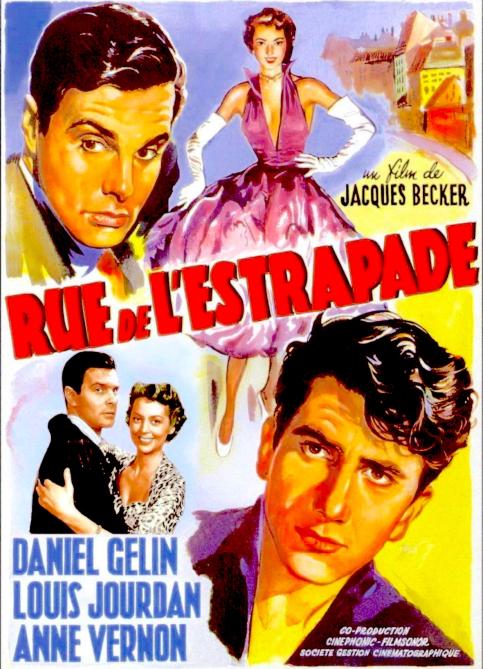 PG: Correct—and that “woman behind” was a beauty queen in her own right—Annette Wademant, from Belgium, who swept Jacques Becker off his feet in a romance at least as tempestuous and unexpected as what happens in THE LOVERS!
PG: Correct—and that “woman behind” was a beauty queen in her own right—Annette Wademant, from Belgium, who swept Jacques Becker off his feet in a romance at least as tempestuous and unexpected as what happens in THE LOVERS!
OF: Hmm—so much “ooh la la”… (laughter)
DM: Phoebe quoted Anne Vernon, the female lead in RUE, talking about the “battle of the sexes” that went on during filmmaking between Becker and Wademant, each with their own vision of how the film was supposed to be. Oddly, little if any of that seems discernable in the film itself.
PG: Well, as we know all too well, all the drama in life is definitely not on the screen! From what I can discern, Wademant jumped before she could be pushed in terms of her involvement with Becker, and went on to work with Max Ophuls on a film that is far too well-known to be an MCP series—THE EARRINGS OF MADAME DE…
DM: And she also had a major hand in shaping a wonderful noir we have screened—twice! She punched up the dialogue and characterizations for both female leads in A KISS FOR A KILLER, where Mylene Demongeot leads Henri Vidal around by something found south of the waist and creates havoc wherever she goes.
OF: All of which sounds a lot like what the young Annette Wademant was more than capable of!
PG: Well, that’s the cliché, n’est-ce pas? Writers write what they know!
OF: Let’s not forget the night before Moreau, where two films about women dealing with issues of love and work will screen—LA MATERNELLE and THE LOVE OF A WOMAN. The first is your favorite, Phoebe, and the second is Don’s ongoing contribution to our reacquaintance with the great Micheline Presle.
PG: LA MATERNELLE is really so much more than your description conveys—it says so much about how women are charged with shaping the lives of children, whether they are theirs or someone else’s.
DM: And the title of THE LOVE OF A WOMAN tends to hide the issues it confronts—it is a very feminist film, but held within the context of its times, with another astounding, absorbing performance from Micheline Presle. Can she not have both love and work? Why must she choose?
OF: Micheline Presle just passed away recently at age 101.
DM: We had it in the schedule before she died, so it is a bittersweet moment. But we are glad to be able to honor her in what turns out to be a timely manner. She is the forgotten great star of French film in the 1940s and 1950s.
OF: And, Phoebe, your fizzy comedies! I think you might like THE HONORABLE CATHERINE most of all!
PG: We are blessed with a very strong lineup! But seeing another underappreciated great star of what Don likes to call “the lost continent”—Edwige Feuillère—pull out her comedy chops with such bravado is an incredible treat.
DM: And JULIETTA is filled with charm and chaos—the chaos of finding the right partner for one’s life—which, as we all know, is not always that easy!
OF: But Don, your heart might be on your sleeve for the closing night “he said/she said” double bill.
 DM: I’m so glad that a restored version of LA VIE CONJUGALE, one of André Cayatte’s most ambitious, thought-provoking works, managed to surface in time for us to celebrate this unique double feature’s sixtieth anniversary. The story of a failing marriage as told from both partner’s vantage points—first the husband, then the wife—might sound as though it would be belabored.
DM: I’m so glad that a restored version of LA VIE CONJUGALE, one of André Cayatte’s most ambitious, thought-provoking works, managed to surface in time for us to celebrate this unique double feature’s sixtieth anniversary. The story of a failing marriage as told from both partner’s vantage points—first the husband, then the wife—might sound as though it would be belabored.
But thanks to how Cayatte and his lead actors—Marie-José Nat and Jacques Charrier—frame each deviation in the story from one film to the next, you’ll find yourself totally absorbed in the shifting ground of the emotional drama as it plays out. Let’s just sound a bit redundant by saying that it’s the differences that make all the difference. Who do you believe at the end of the presentation—the husband or the wife?
OF: Congratulations on what is another incredible cinematic crate-digging goldmine courtesy of MCP.
PG: Avec plaisir!
DM: Merci!
THE OTHER SIDE OF THE LOST CONTINENT ’24 “AUTEURES” plays March 30-April 3 at the Roxie.
The special Jeanne Moreau triple bill is in the big theater and plays Monday April 1.
For more information about the series as whole, go to:
https://roxie.com/series/auteures-the-other-side-of-the-lost-continent-24/
For more information about the Moreau triple bill evening, go to:
https://roxie.com/production/the-lovers-the-immortal-story-last-love/
POSTER AND PHOTO GALLERY
Good tribute reel created by the Austin Film Society


